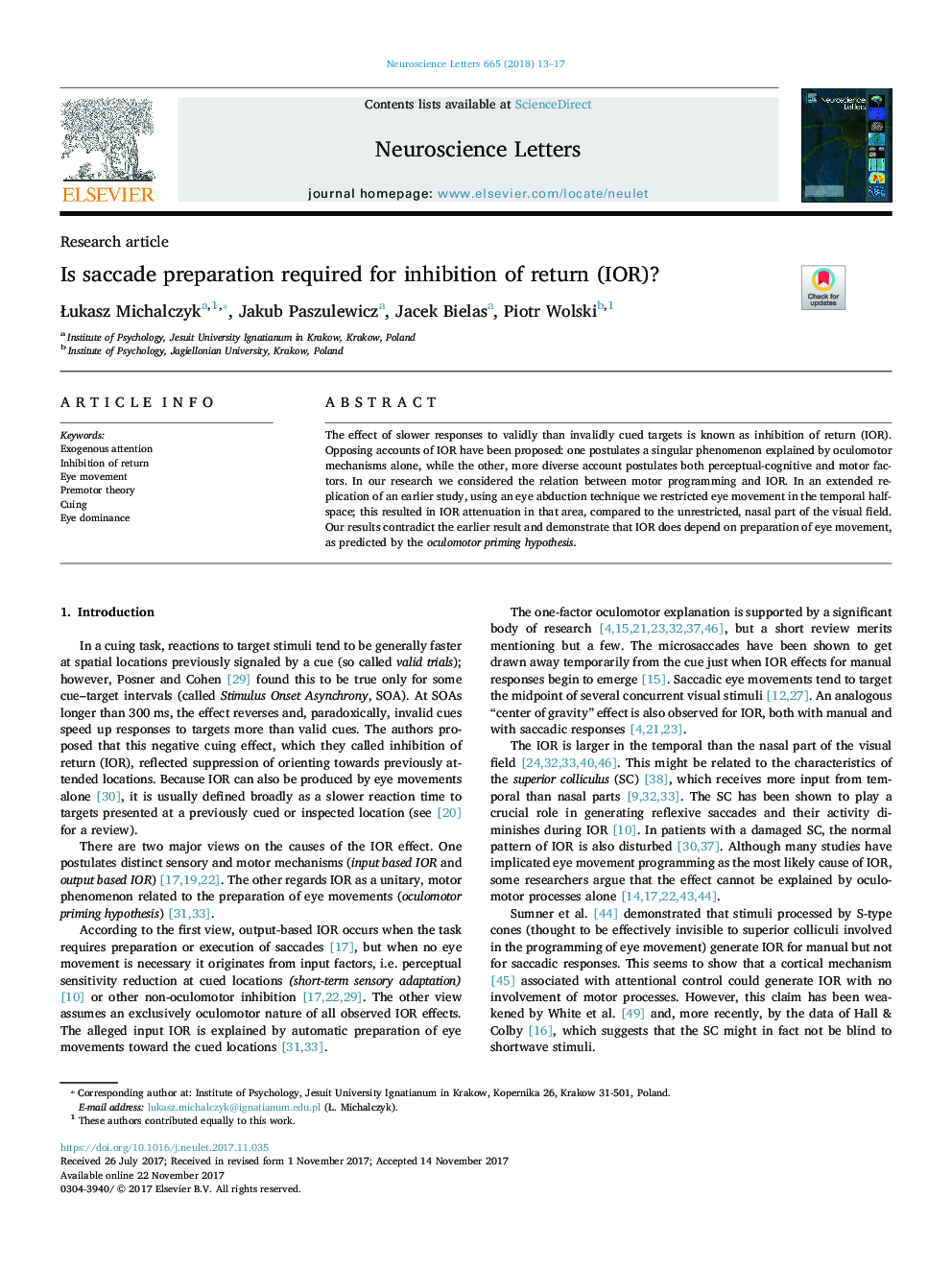| Article ID | Journal | Published Year | Pages | File Type |
|---|---|---|---|---|
| 8841841 | Neuroscience Letters | 2018 | 5 Pages |
Abstract
The effect of slower responses to validly than invalidly cued targets is known as inhibition of return (IOR). Opposing accounts of IOR have been proposed: one postulates a singular phenomenon explained by oculomotor mechanisms alone, while the other, more diverse account postulates both perceptual-cognitive and motor factors. In our research we considered the relation between motor programming and IOR. In an extended replication of an earlier study, using an eye abduction technique we restricted eye movement in the temporal half-space; this resulted in IOR attenuation in that area, compared to the unrestricted, nasal part of the visual field. Our results contradict the earlier result and demonstrate that IOR does depend on preparation of eye movement, as predicted by the oculomotor priming hypothesis.
Related Topics
Life Sciences
Neuroscience
Neuroscience (General)
Authors
Åukasz Michalczyk, Jakub Paszulewicz, Jacek Bielas, Piotr Wolski,
